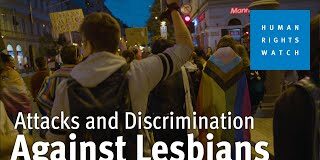LGBTQ professionals’ pride in their science, technology, engineering, and math work is not reciprocated, say researchers.
These STEM professionals are more likely to experience career limitations, social exclusion and harassment, and devaluation of their scientific and technical knowledge than their non-LGBTQ peers, according to new University of Michigan research.
LGBTQ workers also report more health difficulties, as well as greater intentions to leave STEM disciplines and employment sectors—patterns not explained by differences in training, experience or work dedication.
In recent decades, greater efforts to diversify STEM fields have intensified to change the dynamics of white male-dominated professions. Previous studies documented the inequality based on race and gender, but U-M sociologist Erin Cech and colleague Tom Waidzunas of Temple University analyzed the experiences among LGBTQ professionals.
“The question of whether LGBTQ professionals encounter systemic disadvantages in STEM … is important not only for fully mapping the landscape of demographic inequality in STEM but for identifying places where STEM fails to live up to its meritocratic ideals,” the researchers wrote.
Data came from STEM-related professional societies with some 25,000 members, including 1,000 individuals who identify as lesbian, gay, bisexual, transgender or queer. Cech and Waidzunas examined potential inequalities by LGBTQ status along five dimensions: career opportunities, professional devaluation, social exclusion, health and wellness difficulties, and intentions to leave STEM.
LGBTQ professionals have fewer opportunities to develop their skills than non-LGBTQ peers and less access to resources they need to do their jobs well, the study indicated. In addition, if they feel threatened, they are less confident to whistleblow without fear of retaliation.
About 20% of LGBTQ professionals also said they feel devalued about their STEM expertise, despite having the same experience and education levels as their non-LGBTQ counterparts.
One-third of the respondents encounter social exclusion compared to 22% of their non-LGBTQ colleagues. About 30% of LGBTQ respondents experienced workplace harassment in the past year, the study showed.
Due to the negative work environment, some LGBTQ employees suffered health and wellness challenges within the past year. A few outcomes cited were stress, depression and insomnia.
Finally, 22% of LGBTQ professionals considered leaving STEM at least once in the last month compared with 15% for their counterparts. About 12% of LGBTQ respondents (vs. 8% of non-LGBTQ) planned to find a different career within the next five years, the study reported.
“We suspected we might find that LGBTQ professionals experienced marginalization among their colleagues, due to enduring biases toward LGBTQ-identifying people,” said Cech, assistant professor of sociology. “What was striking was that these inequalities extended to how colleagues treated their scientific and technical contributions.
“These disadvantages not only impacted LGBTQ professionals’ careers, but also affected them in deeply personal ways—amplifying experiences of stress, insomnia, and other health problems.”
The findings appear in the current issue of Science Advances. To obtain a copy of the study before the embargo lifts, contact the American Association for the Advancement of Science at 202-326-6440 or vancepak@aaas.org.
More information:








